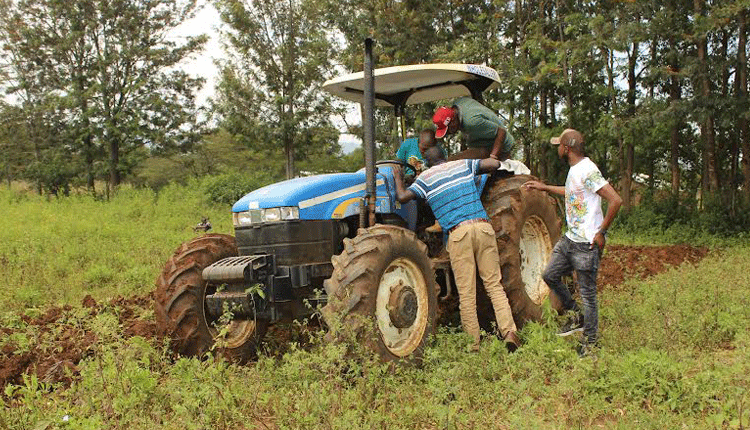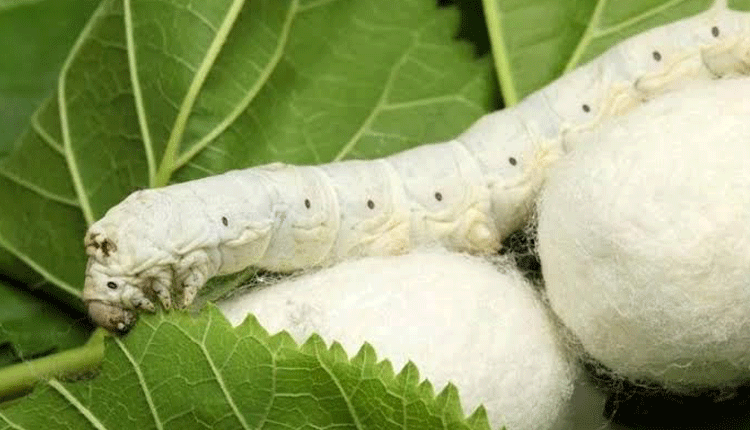Eldoret farmers turn to silk production
By Emmanuel Masinde, October 5, 2021Traditionally known for growing tea, coffee and maize, more and more Kenyans are turning to silk rearing as unpredictable weather and disease, in recent years have led to low crop yields, with devastating effect to small-scale farmers.
Sericulture, the rearing of silkworms for the production of raw silk is becoming an appealing alternative farming practice for farmers.
It is less susceptible to erratic weather conditions because mulberry trees, the staple diet of the silkworm, are hardy and require little water.
Unknown to many, a kilogramme of silk goes for about Sh3,000 and many traders in Ziwa area, Eldoret, Uasin Gishu county have been knocking at the door of sericulture pioneer in the area Joe Kariuki to sell their produce and work at his farm.
Kariuki has partnered with an international company, Golden Power Coin to launch an expansive GPC ranch, a staggering 10,000-acre piece of sprawling land aimed at the production of silk in a large-scale farming.
“This is going to be a training centre for farmers who want to start silk farming.
We will also be planting mulberry trees and rear the silkworms to produce and sell 30,000 tons (27,000 kilogrammes) to India and China,” said Kariuki recently during the official launch of the farm.
The farmland, which is leased for seven years is located in the outskirts of Eldoret town has become a huge hit as Kariuki promises to employ 5000 Kenyans.
“Our employees will be paid on a daily basis depending on work done each day. Also farmers who will be selling their produce will be paid as they deliver,” said Kariuki.

Armed with that knowledge, thousands of Kenyans have abandoned their daily routines and jobs to jump into the viral silk trade.
The farm manager Jared Lang’at said that maize and wheat farming has been the backbone of residents in the county, but silk farming comes with its advantages as, unlike what and maize, one only needs a small portion of land to set up the venture.
The farm has rolled out a wide-reaching offer to over 25,000 sericulture farmers willing to sell their silk to the farm and reap handsomely.
Langat said that they have received many applications for training on sericulture, and rollout is ongoing.
“We have received more than 1,000 applicants, and more are coming, we are all on it, there is an endless trail of opportunities so far,” added Lang’at.
Mulberry planting
According to International Centre for Insect Physiology and Ecology (ICIPE), cultivating mulberry is the first step in silkworm farming. It is grown using the vegetative plant parts, direct to the farm or in nursery beds.
Before the onset of rains, the land is prepared by weeding, ploughing, digging, and levelling.
Seven tonnes (7,000 kilogrammes) of farmyard manure per acre per annum is mixed with the soil.
The mulberry cuttings are planted at the onset of the rains. The type of mulberry variety used depends on the climate and soil type.
On average, in seven to eight months, the new mulberry plants will have sufficient foliage to support rearing of one box of 20,000 silkworms.
If the rains fail after planting, the land is irrigated once every 15 days. Pruning is recommended after the mulberry is one year old; and plants can, thereafter, support up to four boxes of silkworms. Subsequent pruning is done twice a year.
“We will be helping farmers with seedling for mulberry and other necessary facilitation, thereafter, they sell their produce to us,” said Langat.
The worms need a constant supply of leaves to increase the silk production. The eggs develop to the larvae stage and it takes between 25 to 32 days to make cocoons. The silk is harvested by boiling the cacoons in hot water.
Silk worms thrive well in temperatures of between 23 to 28 degrees celcius. They die when exposed to direct sunlight.
It is also advisable not to wear strong perfume near them or smoke because they thrive on fresh air.
Their rearing trays should be disinfected before spreading papers underneath where the worms will be reared.
The rearing of silkworms is seen as less affected by a changing climate that has hurt some traditional crops because the mulberry trees silkworms feed on are relatively drought-resistant.
Caroline Muthoni, a new silk trader who has jumped onto the bandwagon said she had never heard of silk farming, until it was recently introduced to them.
“Silk is new to me and I find it lucrative and fresh. I can’t wait to reap from it and stabilize my life from this trade. All of my friends have jumped into it too,” she says.
“Silk farmers across the country are earning good money from selling silk cocoons, which has made it easy for them to support their households.
They are also proud to be some of the few producers of raw materials from which the world’s most expensive garments and related materials are made,” Lnag’at offeres.
In Kenya, there are currently 600 farmers involved in the growing of mulberry trees to feed the worms and only 50 of them are raising silkworms.
Sericulture has the potential of poverty eradication and economic empowerment, especially for women and because it is not labour intensive. Silk production also has the potential of serving as a supplement to the textile industry in Kenya due to the dwindling cotton production.
